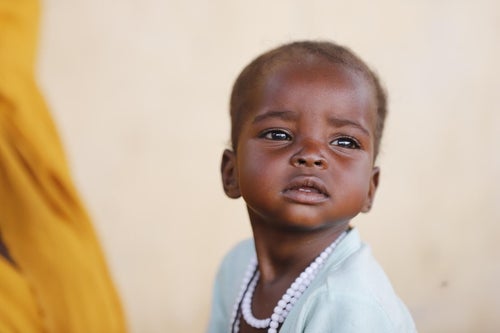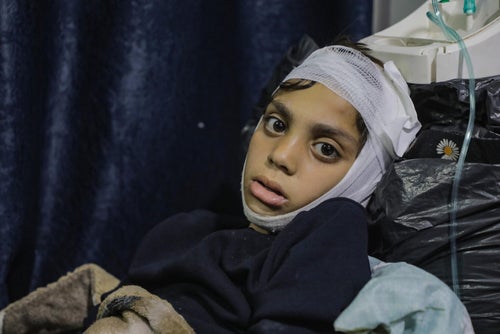Across the Gaza Strip, families are facing impossible choices. With almost no aid allowed in, supplies being blocked at the border, and food prices soaring, parents and children are risking their lives for even the smallest amounts of food or safe water. Many walk for hours, wait in crowds, or brave airstrikes and gunfire – often to return empty-handed.
Some don’t return at all.
For nearly two years, families have endured a relentless and brutal conflict. Children have been killed, injured, and orphaned – an average of 28 children have been killed each day – the equivalent of an entire classroom. With schools and homes reduced to rubble, they’ve lost access to safe places to live, learn, and play. Now, they are facing a worsening humanitarian crisis, cut off from the lifesaving nutrition and supplies that are so desperately close across the borders.

In recent months, instead of improving access to lifesaving supplies, a new aid distribution plan has made the situation worse for children and families in Gaza. Aid is now being delivered at just four non-UN distribution sites located in southern Gaza – far fewer than the over 400 sites previously operated by humanitarian organisations, including UNICEF, across the entire Gaza Strip.
Families have been forced to travel long distances to access supplies at the four aid distribution sites, and when there, they face a chaotic and dangerous situation. Between 27 May and 7 July alone, insecurity at the four non-UN aid distribution sites reportedly led to the deaths of nearly 1,000 people and thousands more injured, many of them parents and children simply trying to access basic food and essential items. No child should grow up surrounded by hunger, fear, and loss. No parent should have to choose between safety and feeding their family.
No mother should be killed trying to feed her family
Reem walked for hours with two of her children to reach a non-UN aid distribution point in Rafah, hoping to bring back food for her family. She never made it home.
The mother of eight children was shot dead by a sniper.
Reem's 15-year-old son, Ahmad, and 22-year-old daughter, Mervat, witnessed the horror.

"We left our tent at sunset and walked all night to reach the aid area,” says Ahmad. “Thousands were there. We thought it was safe."
But it wasn't.
"Gunfire started everywhere,” Mervat recalls. “I heard a girl scream. I turned and saw my mother fall. She was covered in blood."
Ahmad adds, "Snipers fired at us. We couldn’t move forward or back. I dropped to the ground. We couldn’t lift our heads."
In the chaos, Mervat reached her mother.
“I checked for a pulse. It was weak. I held her hand and called, ‘Mum, wake up!’ A medic told me she had died. I collapsed on her chest."
Ahmad ran to find a cart to carry her body.
“Anyone who stood up was shot. When I came back, people told me Mervat was dead too. I screamed her name."
Hearing Ahmad’s cries, she followed his voice and found him.
“We hugged each other tight in the darkness."
Ahmad remembers his mother, "She was my paradise. I suffer without her. The war took my brother in Khan Younis. Now I have no mother."
"Now I’m like a mother to my siblings,” Mervat says. “Life is harsh without her."
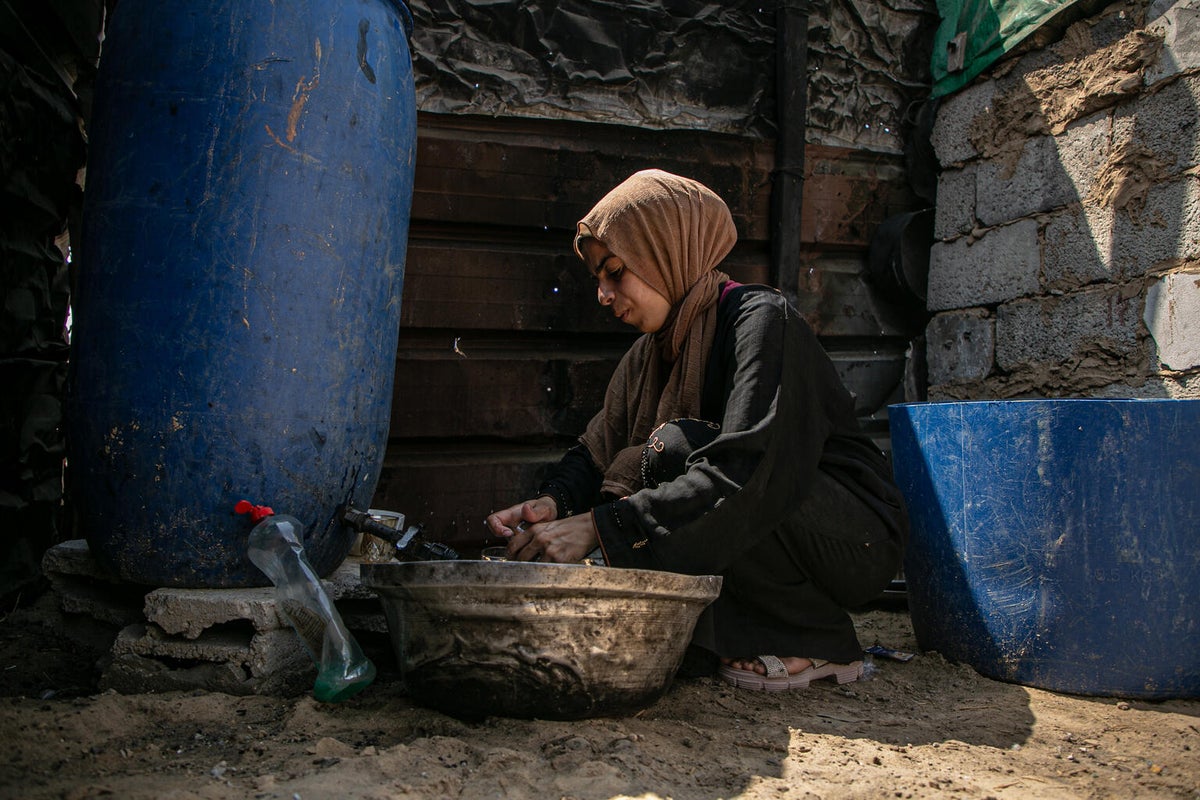
Children are risking their lives to help feed their families
Across the Gaza Strip, families are trying to keep their loved ones alive. No parent should have to choose between safety and feeding their family. No child should be forced to step into their parents’ shoes and face those same impossible choices.
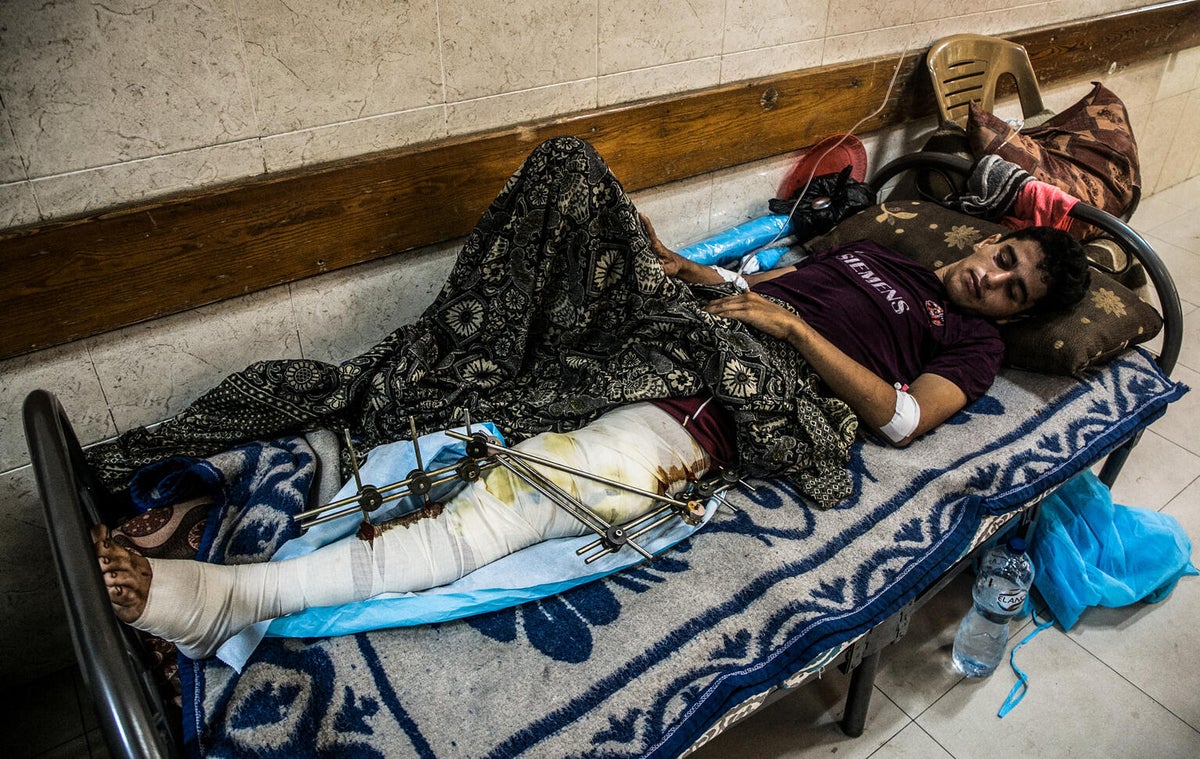
Bilal, 17, lives with his parents and six younger siblings. When an airstrike destroyed their shelter and left his father unable to walk, Bilal became his family’s main provider. Desperate for food, he and his cousin walked for hours from their camp to a non-UN aid distribution point in Nuseirat. But they never reached it safely.
"We thought we’d be safe because there were so many people there. When the shooting started, we hid behind a wall. A tank shell hit my left leg. I lay there bleeding for hours before I got help. Now I’ve lost my knee joint and have a metal device in my leg,” explains Bilal.
"Before the war, I was always top of my class. I dreamed of a good life. Now I’m lying in the hospital. I didn’t even get the food we needed."
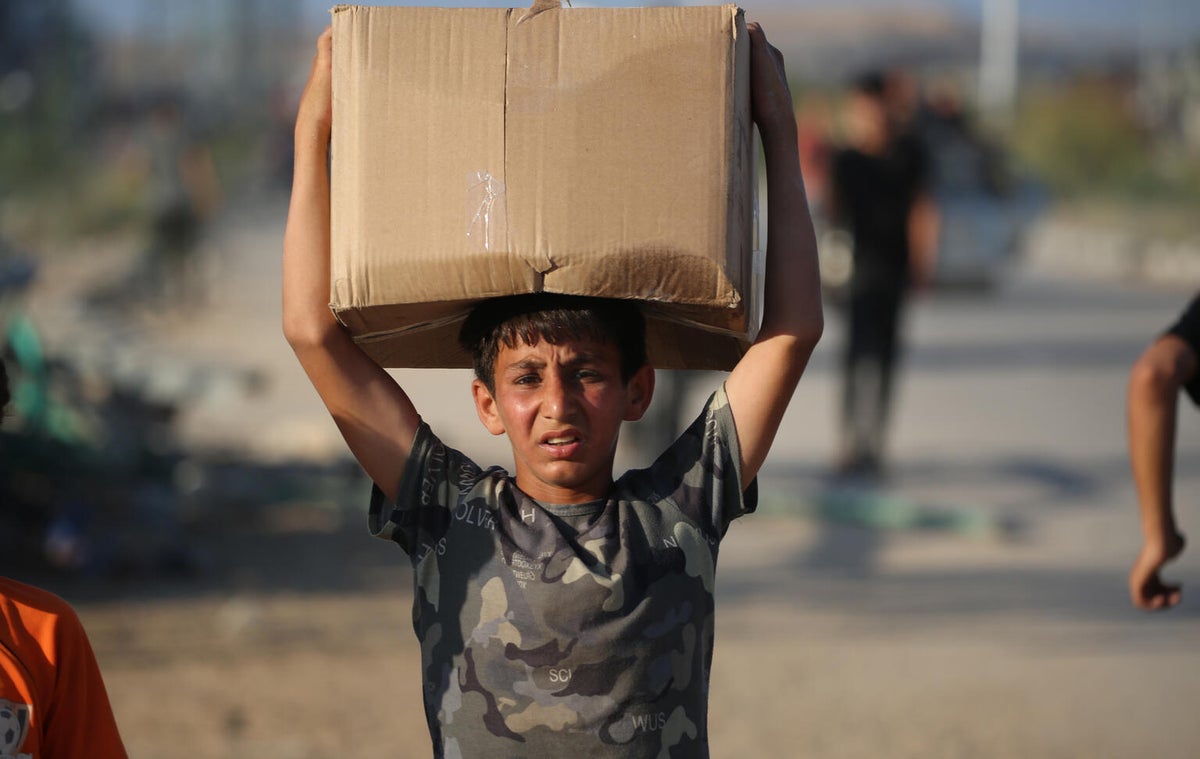
Fadi, 13, also risks his life to help his family. After losing his father to the war, he now bears the burden of finding food for his mother and siblings.
"I wait for hours at Wadi Gaza, and when the aid distribution in Netzarim opens, I rush there to get a food basket. My siblings and I are starving because of the lack of food and high prices. Even though it’s very dangerous, I have to go to Netzarim to get food for my mother so that my brothers and I can survive,” says Fadi.
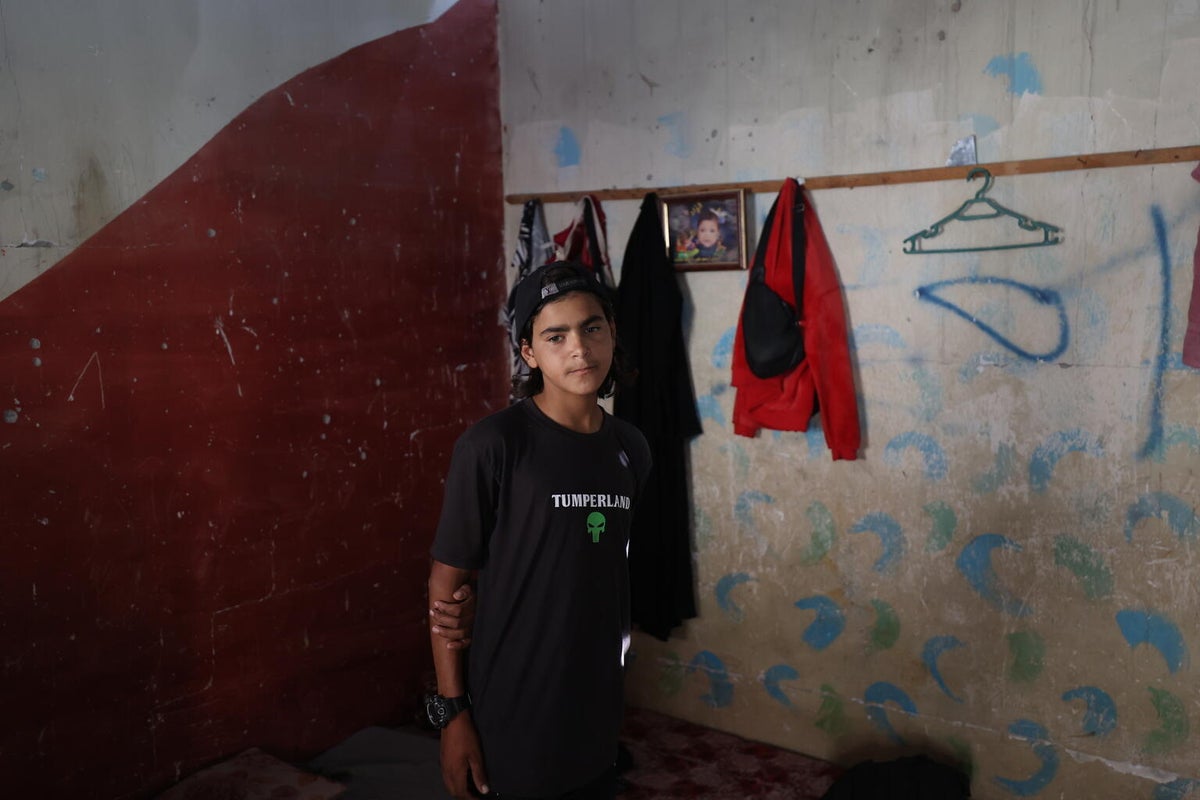
At 14 years old, Ibrahim set out one night to collect food from a non-UN aid distribution site. On the way, he found his father lying on the ground having been shot in the head.
"I lost my father, and I don’t know how to live without him. Every morning when I wake up and don’t see him, it hurts so much. I hope, from my heart, that these terrible massacres and this destructive war will end."
Injured and sleeping in the streets to access aid for his family
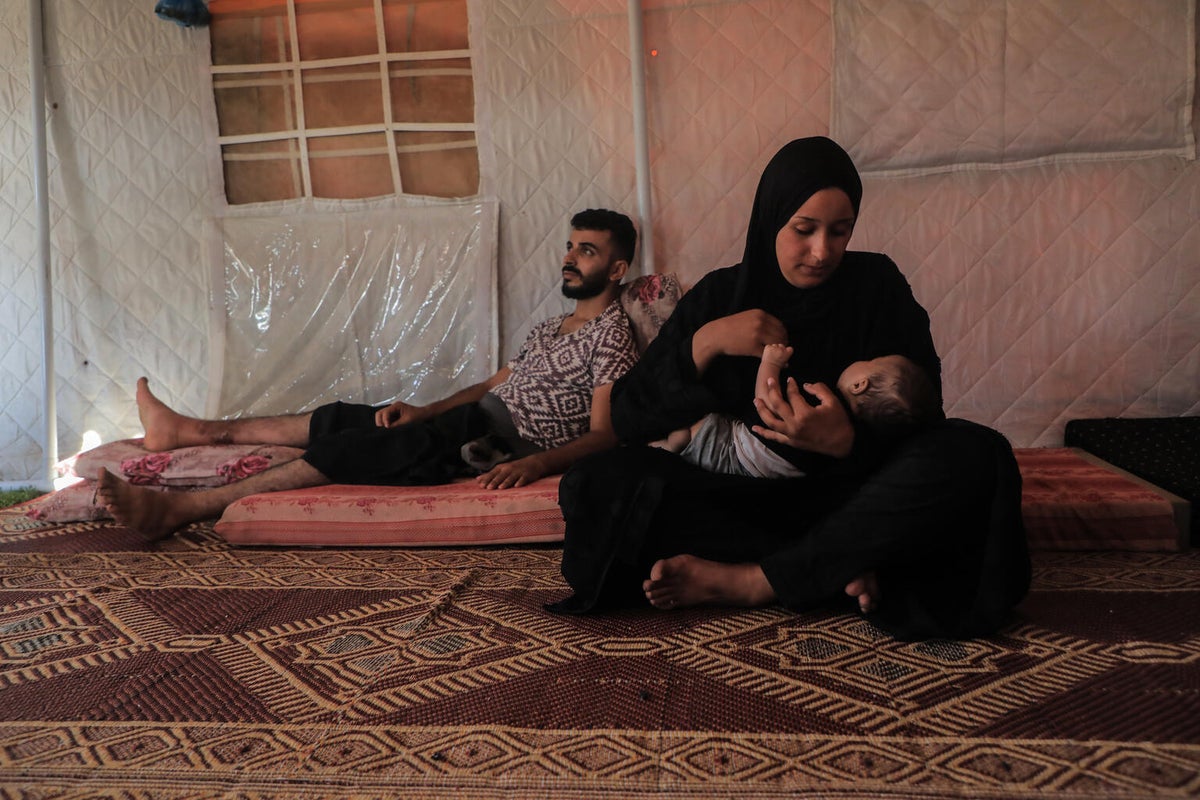
After losing their newborn twins to malnutrition, Masoud and his wife, Waad, are determined to do everything they can to keep their two surviving children, two-year-old Ibrahim, and three-year-old Mohammed alive.
Masoud made a desperate journey from northern Gaza to Rafah in the south, hoping to collect food. Instead, he returned injured and empty-handed. His leg is now infected and at risk of gangrene.
This is his story.
"For more than fifty days, nothing entered our tent. We relied on soup kitchens, but even they have stopped working. I worked day and night just to buy one kilo of flour. That’s why I went to Rafah when I heard about food distribution.”
"I walked 25 kilometres on foot, arriving in Rafah at 2:30 a.m. It was like the Day of Judgment. Crowds were everywhere. I thought anyone who got one can of beans was lucky. If you survived the gunfire, you might still get attacked on the way out.”
"We waited in huge crowds. I slept on the ground like everyone else. If you lift your head, you could get shot. If not the sniper, then the gunboat or quadcopter. Getting out alive felt like being reborn.”
"At 3 a.m., a shell hit near us. I threw myself to the ground. Everyone was injured. My leg was hit. I tied it with a cloth and crawled back. I hid there until the next day, hoping for another chance at the distribution point. By then, my leg was infected.”
"I stayed because I hoped to get something by the next day. I had no money for transport. People helped me get home. Doctors said my leg has early-stage gangrene. All this suffering, and my tent is still empty."
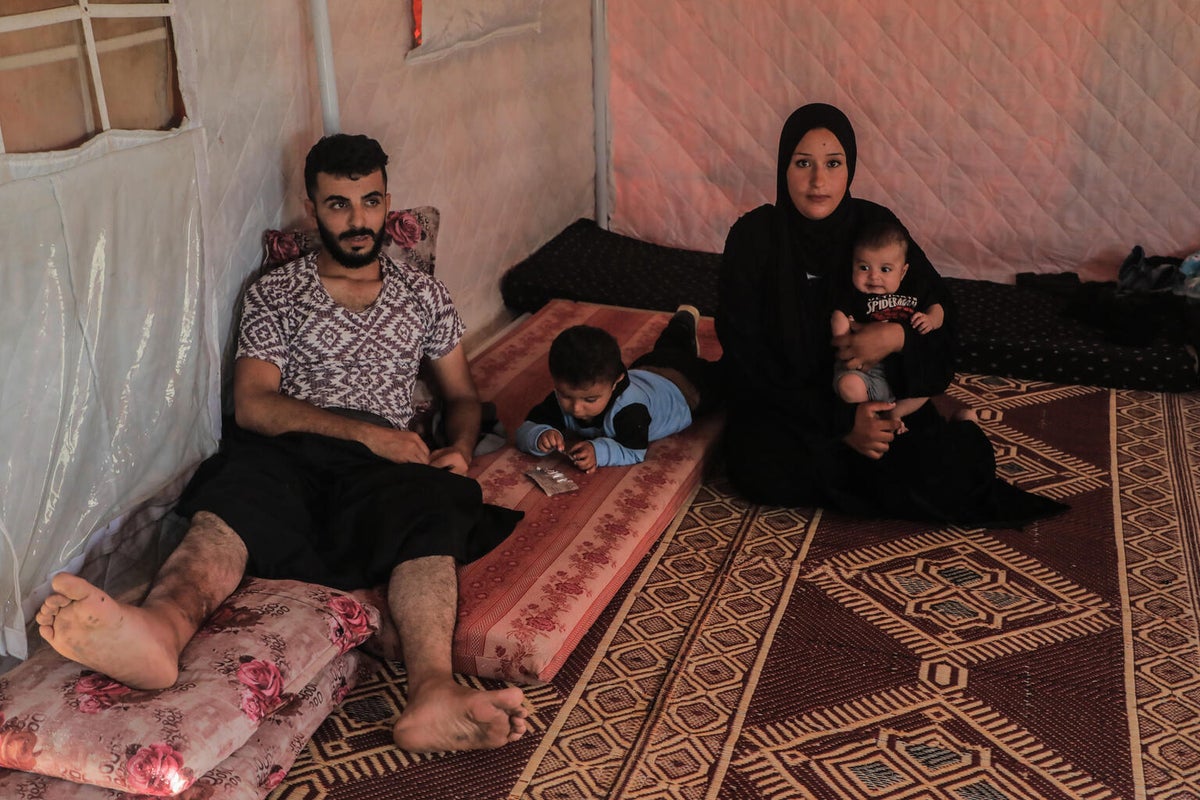
Humanitarian aid has one purpose: to save lives. It is not a weapon of war but a lifeline when everything else is lost.
Every day, families like Reem’s, Bilal’s, Fadi’s, Ibrahim’s and Masoud’s are being denied safe access to lifesaving humanitarian aid.
No one should have to risk their life to access food, water, or medicine. And yet, since May 2025, parents and children have been killed while trying to reach aid, many near non-UN aid distribution sites.
Humanitarian and commercial goods must be allowed to enter Gaza through all available crossings and reach families swiftly, safely, and with dignity.
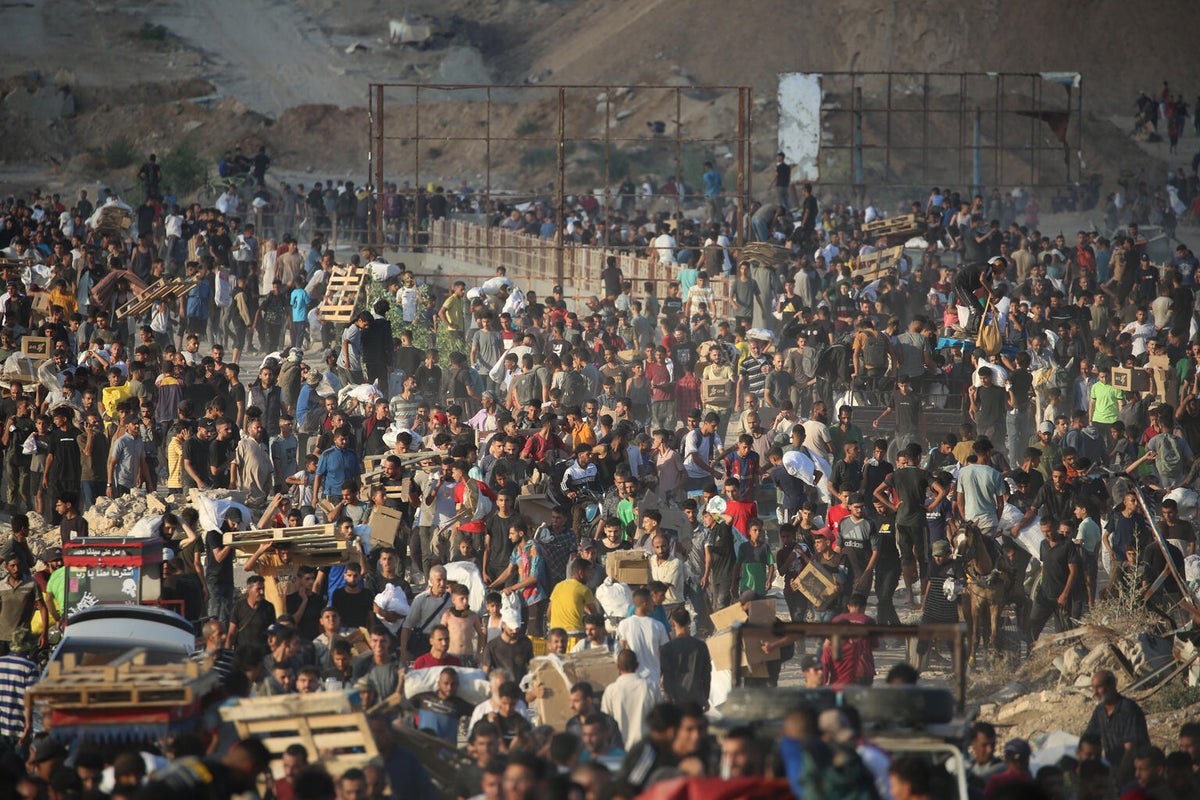
Humanitarian organisations, like UNICEF, must be allowed access to deliver aid at scale to families wherever they are. Our teams deliver humanitarian aid without discrimination – regardless of nationality, ethnicity, gender, disability, or religious and political beliefs.
Over the decades, we have built trust within communities, developed deep local knowledge that cannot be replaced or replicated, and have been delivering critical support in healthcare, nutrition, education, child protection, and water, sanitation, and hygiene for Palestinian children and their families since the 1980s.
During the last ceasefire, our teams delivered over 600 trucks of lifesaving supplies a day, with UNICEF and our partners even delivering aid door-to-door, reaching malnourished children and pregnant women in their place of refuge.
"When we deliver food, we know it goes to children; when we deliver vaccines, we know it’s going in the children’s arms. When we’re doing psychosocial support work to help children deal with the torment that they have been through, we are there with that child."
Children need UNICEF and our partners to be allowed to do our jobs. We’ve shown that when given safe and unrestricted access, we can deliver what’s most urgently needed – nutrition, medicine, vaccines, clean water and shelter – directly to children and their families, no matter where they are.
Children of Gaza Crisis
Amid unrelenting violence, children in Gaza are starving to death. Support UNICEF’s ongoing efforts. Donate today.
Related articles
Stay up-to-date on UNICEF's work in Australia and around the world






